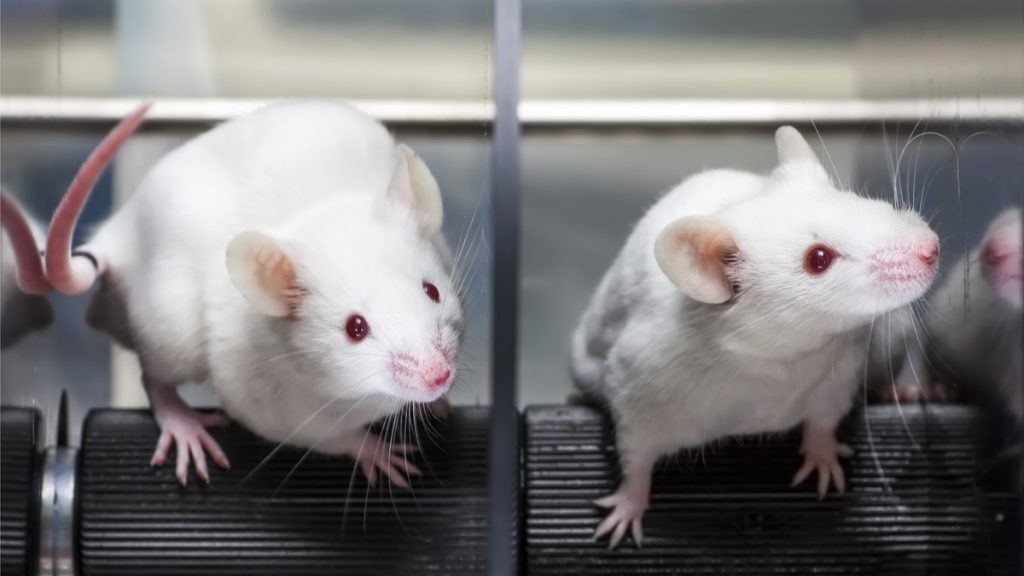Experiments on mice revealed a significant increase in blood levels of an amino acid after intense exercise. Suppressing the feeling of hunger and promoting weight loss, it could be used to treat obesity in humans.
The Lac-Phe molecule
While it is well established that regular physical exercise is beneficial to our bodies, scientists continue to examine the mechanisms involved at the molecular level. In the context of work published in the journal Naturea team of Stanford subjected rodents to intense workouts on treadmills and studied how the chemicals in their cells change over time.
In particular, the researchers observed the appearance ofa molecule called Lac-Phe (N-lactoyl-phenylalanine), synthesized from lactate and phenylalanine. The latter turns out to be an amino acid that combines with other molecules to form proteins, while lactate is produced by the body after intense exercise.
According to them, it isan important new biological pathway triggered by exercisethen having an impact on the rest of the organism, in particular the appetite level and the amount of food ingested.

Clear effects
Further tests confirmed these results. The researchers administered large doses of Lac-Phe in mice fed a high-fat diet. Over the next 12 hours, rodents consumed twice as little food as the control groupwhile their levels of activity and energy expenditure remained unchanged.
Over a period of 10 days, the doses of Lac-Phe resulted in decreased food intake, lower body weight and improved glucose tolerance in mice. suggesting that this approach could potentially be used to combat obesity and related diseases.
It should be noted, however, that the differences in appetite suppression caused by Lac-Phe were only noticeable after exercise and in mice fed a high-fat diet. Such effects were not observed in more sedentary animals fed normally.

Increased levels of Lac-Phe also seen in humans
If an increase in the levels of Lac-Phe post-exercise has been demonstrated in racehorses and humans (particularly after a sprint), the repercussions on the body could not be examined. Therefore, further research is needed to determine whether all of the effects observed in rodents also occur in humans.
According to the study authors, these results improving our understanding of molecular responses to physical activity could facilitate the development of new treatments.
” Future work aimed at identifying molecular and cellular mediators downstream of Lac-Phe action in the brain may provide new therapeutic possibilities for harnessing the cardiometabolic benefits of physical activity for human health. “, they conclude.
[related_posts_by_tax taxonomies=”post_tag”]
The post Discovery of an “anti-hunger” molecule promoting weight loss after exercise appeared first on Gamingsym.

